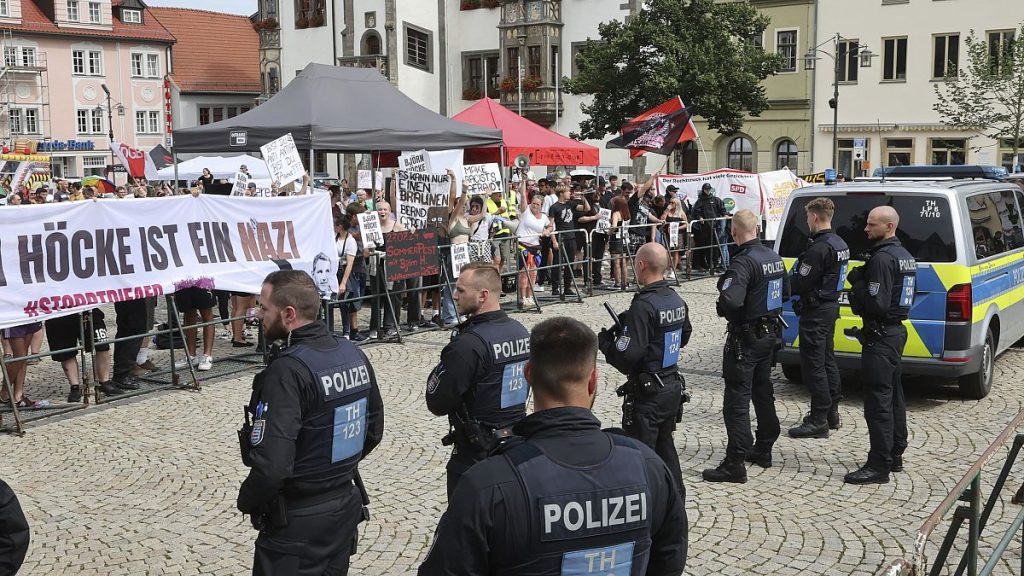Thuringia, a German state, is a traditional stronghold of the far-right Alternative for Germany (AfD) party. Recent polls suggest that the AfD could become the second strongest party in the state’s parliament. This has sparked concern and frustration among many residents, as evidenced by a recent protest in the capital city of Erfurt, where over 4,000 anti-far right protesters gathered. Jens-Christian Wagner, the director of the Buchenwald memorial located in Thuringia, expressed disappointment that despite efforts to educate people about history and politics, a significant portion of the population is still willing to support the AfD. Buchenwald was a labor death camp run by the Nazi party during World War Two, where thousands of prisoners, primarily Jews, lost their lives.
The Christian Democratic Union of Germany (CDU), which currently governs Thuringia in a coalition with the SPD and the Greens, is currently polling two percent behind the AfD. A recent poll by INSA suggests that the AfD’s support may increase following a tragic incident where a failed Syrian asylum seeker was arrested in connection with the fatal stabbing of three festival-goers in the city of Solingen. If the polling holds true, the AfD could receive more than the predicted 32% of the vote. The upcoming state elections in Saxony and Brandenburg are also expected to have a significant impact on national politics, as they, along with Thuringia, account for 10% of Germany’s population.
The rise of the far-right AfD in Thuringia has raised concerns among many residents and officials. Efforts to educate people about the historical significance of supporting such a party, particularly in a region with a dark history of Nazi atrocities, have not been as successful as hoped. The recent protest in Erfurt highlights the level of frustration and opposition to the AfD’s growing influence in the state. The upcoming elections in Saxony and Brandenburg, as well as Thuringia, are poised to have a significant impact on national politics, with the potential for the far-right to gain further ground.
The CDU, currently in power in Thuringia, is facing stiff competition from the AfD, which is polling well and could become the second largest party in the state’s parliament. The recent arrest of a Syrian asylum seeker in connection with a violent incident has added fuel to the fire, potentially boosting support for the far-right party. The upcoming state elections in other parts of Germany are also expected to shape the national political landscape, with the outcomes in Thuringia, Saxony, and Brandenburg likely to influence the direction of the country as a whole. Efforts to combat the rise of the far-right in Thuringia and beyond continue, with protests and activism playing a key role in raising awareness and opposition to extremist ideologies.
The situation in Thuringia reflects broader trends of far-right resurgence in parts of Germany and beyond. The historical context of the region, with its dark past of Nazi atrocities, adds a layer of complexity to the current political landscape. The ongoing struggle to educate and inform the population about the dangers of supporting right-wing extremism is a key focus for many activists and officials in Thuringia. The upcoming state elections in Saxony and Brandenburg will provide further insights into the political climate in Germany, with potential implications for national politics. The need for continued vigilance and action against far-right ideologies remains a pressing concern for many in Thuringia and beyond.


